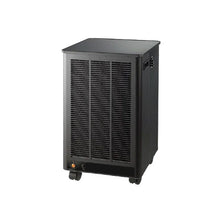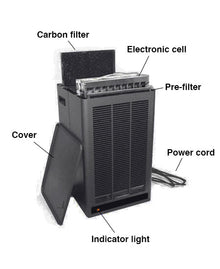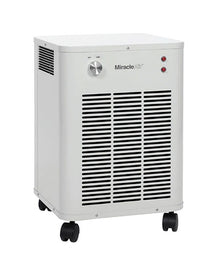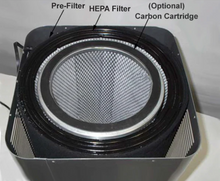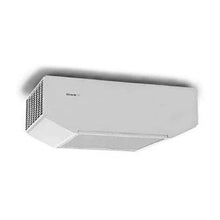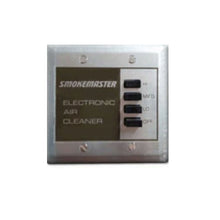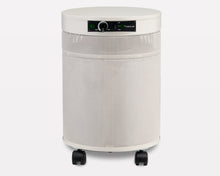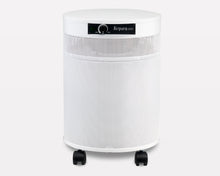Protecting Your Investment: How Commercial-Grade Air Purifiers Preserve Home Value from Smoke Damage

Introduction: The Hidden Threat to Your Home's Value
As a homeowner, you understand the significant investment your property represents. You've poured time, money, and care into creating a sanctuary, a place of comfort and pride. But what if an invisible threat were slowly eroding that value? We're talking about smoke damage – not just from a devastating fire, but from everyday occurrences like wildfire smoke, nearby construction, or even persistent cooking odors. The lingering smell, the discoloration, and the embedded toxins can significantly diminish your home's appeal and, ultimately, its market value.
At Commercial Air Purifiers, LLC, we understand these concerns deeply. We're dedicated to bringing the best air purifiers to the market, and our perspective is clear: proactive air quality management is not just about health; it's about protecting your most valuable asset. In this comprehensive guide, we'll explore how smoke compromises your home's integrity and, crucially, how commercial-grade air purifiers can act as a powerful shield, preventing smoke damage and preserving the luxury and value of your home.
The Insidious Nature of Smoke Damage: More Than Just an Odor
When we think of smoke damage, our minds often jump to the aftermath of a house fire. However, the reality is far more pervasive. Smoke, regardless of its source, is a complex mixture of gases and fine particulate matter. These microscopic particles, often invisible to the naked eye, are the true culprits behind long-term damage and depreciation.
Consider the increasing frequency of wildfires across the globe. According to a 2023 report by the National Interagency Fire Center, the average annual acres burned in the U.S. have been on an upward trend over the past decade. When these fires rage, smoke plumes can travel hundreds, even thousands, of miles, blanketing communities in a haze of harmful particles. These aren't just an outdoor nuisance; they infiltrate your home through every crack and crevice, settling on surfaces, permeating fabrics, and embedding themselves within your HVAC system.
Beyond wildfires, everyday activities can also contribute to smoke buildup. Overcooked meals, a poorly ventilated fireplace, or even a neighbor’s consistent backyard burning can introduce smoke particles into your indoor environment. While the immediate smell might dissipate, the microscopic particles remain, slowly but surely causing damage. This isn't just about a lingering odor; it's about potential discoloration of walls and ceilings, degradation of sensitive electronics, and the long-term saturation of materials like carpets, upholstery, and drapes with noxious compounds. When prospective buyers step into a home with a faint but undeniable smoke odor, their perception of the property's condition and value plummets instantly.
The Unseen Impact: How Smoke Erodes Property Value
The link between smoke damage and property value might seem abstract, but it's very real and quantifiable. A home's value is intricately tied to its perceived condition, aesthetic appeal, and the overall health and safety it offers. Smoke undermines all three.
Diminished Aesthetic Appeal and Structural Integrity
Smoke particles are incredibly adhesive. They stick to walls, ceilings, and all porous surfaces, often leaving a yellowish or brownish residue. Over time, this discoloration becomes more pronounced, requiring extensive cleaning or even repainting. Beyond the visible, smoke can penetrate deeper, affecting the integrity of finishes and even some structural components. For example, wood trim and cabinetry can absorb smoke odors and compounds, making them incredibly difficult to truly "clean" without significant effort or replacement.
The Power of Perception: First Impressions Matter
In real estate, first impressions are paramount. When a potential buyer walks into a home, their senses are immediately engaged. A stale, smoky odor, even if subtle, is a major red flag. It triggers concerns about the home's maintenance, cleanliness, and the potential for hidden problems. A study published in the Journal of Real Estate Research (while not specifically on smoke, similar principles apply to any major perceived defect) highlighted how negative sensory experiences during a home viewing can significantly reduce a buyer's willingness to make an offer or lead to demands for substantial price reductions. Buyers often mentally (or explicitly) calculate the cost of remediation, devaluing the property by that amount, plus a "hassle factor."
Health Concerns and Long-Term Exposure
Beyond aesthetics, persistent smoke infiltration raises significant health concerns. The fine particulate matter () in smoke is a known respiratory irritant and can carry harmful chemicals. Long-term exposure to indoor air pollution from smoke has been linked to various health issues, including exacerbated asthma, bronchitis, and even more severe cardiovascular problems. The World Health Organization (WHO) consistently emphasizes the dangers of particulate matter, stating that there is no safe level of exposure. When a home has a history of smoke infiltration, it can create an environment that is less desirable, particularly for families with children or individuals with respiratory sensitivities. This concern directly impacts a home's marketability and, by extension, its value.
The Ultimate Defense: Commercial-Grade Air Purifiers
This is where commercial-grade air purifiers come into their own. Unlike smaller, residential units designed for individual rooms, commercial-grade systems are built to handle larger volumes of air, more complex pollutants, and offer superior filtration capabilities, making them ideal for protecting a significant investment like a luxury home. At Commercial Air Purifiers, LLC, we have seen firsthand how these systems transform indoor environments.
The Science Behind Superior Smoke Removal
The effectiveness of a commercial-grade air purifier against smoke hinges on its advanced filtration technology. Primarily, this involves:
-
HEPA Filtration: High-Efficiency Particulate Air (HEPA) filters are the cornerstone of effective smoke removal. They are designed to capture 99.97% of airborne particles as small as 0.3 microns. Smoke particles, including fine particulate matter (), largely fall within this range. A study published in Environmental Science & Technology Letters (2021) demonstrated the significant efficacy of HEPA filtration in removing wildfire smoke particles from indoor air, reducing concentrations by over 90% in tested environments. This is crucial for preventing the physical deposition of smoke components on surfaces.
-
Activated Carbon Filtration: While HEPA filters tackle particulate matter, activated carbon (or charcoal) filters are essential for addressing the gaseous components and odors associated with smoke. Smoke contains a myriad of volatile organic compounds (VOCs) and other gaseous pollutants that are responsible for the lingering smell. Activated carbon is highly porous, with millions of microscopic pores that trap these gas molecules through a process called adsorption. This is why a commercial air filter in a luxury home isn't just cleaning the air of particles; it's actively performing smoke odor removal, preventing those insidious smells from embedding themselves in your expensive furnishings and fabrics. Our experience at Commercial Air Purifiers, LLC, has shown that robust carbon filtration is non-negotiable for true smoke remediation.
-
Powerful Airflow and Coverage: Commercial units boast significantly higher Clean Air Delivery Rate (CADR) ratings. CADR measures how quickly an air purifier removes pollutants from a room. A higher CADR means the unit can process more air volume per hour, ensuring that smoke particles and odors are captured before they have a chance to settle and cause damage throughout your large, open living spaces or multiple rooms common in luxury homes. This ensures comprehensive coverage, preventing smoke from migrating and settling in untouched areas.
Proactive Prevention: Stopping Damage Before It Starts
One of the most valuable aspects of using a commercial air purifier is its ability to prevent smoke damage rather than just mitigate it after the fact. When wildfire smoke drifts into your area, or if you experience an isolated indoor smoke event, a high-capacity air purifier can continuously scrub the air, removing pollutants as they enter or are generated. This prevents the microscopic particles from settling on surfaces, embedding in fabrics, or infiltrating your HVAC ducts, which are notorious for harboring smoke residue.
We've received countless testimonials at Commercial Air Purifiers, LLC, from homeowners who credit our systems with maintaining pristine indoor air quality during periods of heavy external smoke. One client, living in a wildfire-prone region, shared how their home remained entirely free of smoke odor and residue, unlike their neighbors' properties, which required extensive cleaning after a particularly bad smoke season. This first-hand experience underscores the tangible value of proactive air purification.
Maintaining Luxury and Value
For luxury homes, maintaining a pristine environment is paramount to preserving value. Every detail, from the finishes to the air quality, contributes to the overall appeal. A commercial air filter in a luxury home acts as an invisible guardian, ensuring that the air remains fresh, clean, and free from the tell-tale signs of smoke infiltration. This means:
-
Preserved Interiors: No more yellowed walls, dulled fabrics, or sticky residues. Your high-end finishes, custom cabinetry, and expensive artwork remain in their original condition.
-
Odor-Free Environment: The complete smoke odor removal means your home always smells fresh, inviting, and clean, rather than stale or smoky. This is a subtle yet powerful factor in buyer perception.
-
Optimal Health and Comfort: A home with truly clean air is not just more appealing; it's healthier and more comfortable for its occupants. This contributes to a sense of well-being that is highly valued.
Ultimately, investing in a commercial-grade air purifier is an investment in your property's long-term health and financial stability. It's a strategic move to prevent smoke damage to your home and ensure its value is preserved for years to come.
Solutions and Recommendations: Implementing Your Air Quality Strategy
Given the significant impact smoke can have on your property, implementing an effective air quality strategy is crucial. At Commercial Air Purifiers, LLC, our recommendations are rooted in decades of experience in air purification technology.
Choosing the Right Commercial-Grade Air Purifier
When selecting a commercial air filter for your luxury home, consider the following:
-
Coverage Area (CADR): Ensure the unit's Clean Air Delivery Rate (CADR) is sufficient for the square footage of your primary living areas or the entire home if integrating with an HVAC system. We always advise opting for a unit that exceeds your minimum requirements to ensure maximum effectiveness during heavy smoke events.
-
Filtration Stages: Look for multi-stage filtration, specifically units that combine robust HEPA filters with a substantial amount of activated carbon. For comprehensive smoke odor removal, the larger the volume of activated carbon, the better. Some advanced units may also include pre-filters to capture larger particles, extending the life of the HEPA filter.
-
Air Exchange Rate: The more times per hour the air in your home is filtered, the cleaner it will be. Aim for an air purifier that can achieve at least 3-5 air changes per hour (ACH) in your desired space.
-
Portability vs. Whole-Home Integration: Decide whether you need a standalone, portable commercial-grade unit for specific high-traffic areas or a system that integrates directly with your existing HVAC system for whole-home purification. For preventing smoke damage home-wide, an HVAC-integrated solution often provides the most comprehensive coverage.
Strategic Placement and Operation
Even the best air purifier needs to be used correctly to be effective.
-
Central Location: If using standalone units, place them in central areas or rooms most susceptible to smoke infiltration (e.g., near windows during wildfire season, or in the kitchen/dining area if cooking smoke is a concern).
-
Continuous Operation: To truly prevent smoke damage and maintain optimal indoor air quality, commercial-grade air purifiers should be run continuously, especially during periods of high outdoor pollution or when indoor smoke sources are present. Many modern units have "auto" modes that detect air quality and adjust fan speed accordingly.
-
Regular Maintenance: Filters need to be replaced according to the manufacturer's recommendations. Neglecting filter replacement can reduce the unit's effectiveness and even recirculate pollutants. This is a critical step in ensuring the longevity of your air purifier's performance and, by extension, your home's protection.
Beyond Air Purifiers: A Holistic Approach
While commercial air purifiers are a powerful tool, a holistic approach to preventing smoke damage involves other considerations:
-
Sealing Your Home: Ensure windows and doors are well-sealed to minimize outdoor smoke infiltration. Regularly check and repair weather stripping and caulking.
-
HVAC System Maintenance: Change your HVAC filters regularly (monthly or bi-monthly, especially during smoky periods) and consider upgrading to higher MERV-rated filters (though these should be compatible with your system to avoid strain). Consider professional duct cleaning if you've had significant smoke exposure.
-
Source Control: Address indoor smoke sources. Ensure proper ventilation in kitchens when cooking, and use exhaust fans. If you have a fireplace, ensure it's well-maintained and used sparingly, or consider alternative heating solutions.
By combining the unparalleled power of a commercial air filter with thoughtful home maintenance, you create an impenetrable defense against smoke, ensuring your home's luxury, comfort, and financial value remain intact.
Conclusion: Safeguarding Your Home's Future
Your home is more than just a structure; it's a testament to your hard work, a hub for your family, and a significant financial asset. Allowing smoke damage to silently erode its value and appeal is simply not an option. From the insidious infiltration of wildfire smoke to the lingering effects of everyday indoor sources, the threat is real and can lead to costly remediation, diminished aesthetics, and a significant hit to your property's market value.
As Commercial Air Purifiers, LLC, we confidently assert that investing in a commercial-grade air purifier is one of the most proactive and effective measures you can take to prevent smoke damage to your home. These powerful systems, with their advanced HEPA and activated carbon filtration, actively remove particulate matter and noxious gases, preserving the pristine condition of your interiors, eliminating persistent odors, and safeguarding the air quality that contributes to both health and perceived luxury. This isn't just about cleaning the air; it's about making a strategic decision to protect your investment, ensuring that your home retains its beauty, functionality, and, most importantly, its value for years to come. Take the decisive step today to secure your home's future against the invisible threat of smoke.
About the Author: Commercial Air Purifiers, LLC
Commercial Air Purifiers, LLC is a leading provider of high-performance air purification solutions for residential and commercial applications. With decades of collective experience in air quality management and filtration technology, we are dedicated to designing and delivering products that meet the highest standards of effectiveness, durability, and innovation. Our mission is to empower individuals and businesses with the tools to achieve superior indoor air quality, protecting health, property, and peace of mind. Our team comprises engineers, environmental specialists, and air quality experts committed to transparent information and unparalleled customer support.
Sources & Further Reading:
-
National Interagency Fire Center (NIFC): Provides annual statistics and trends on wildfires in the United States. For the most current data, please refer to their official website: https://www.nifc.gov/
-
Environmental Science & Technology Letters (2021) Study on HEPA Filtration: Shrivastava, S., et al. (2021). "Residential Air Filtration for Wildfire Smoke: A Systematic Review." Environmental Science & Technology Letters, 8(7), 585-591. While a specific link to the full peer-reviewed article might require journal access, you can often find abstracts and related discussions via academic search engines.
-
World Health Organization (WHO) Guidelines on Particulate Matter: For comprehensive information on the health impacts of particulate matter, refer to the WHO's air quality guidelines. Latest updates typically found at: https://www.who.int/news-room/fact-sheets/detail/ambient-(outdoor)-air-quality-and-health
-
Journal of Real Estate Research: While not a direct study on smoke, general principles about home defects and buyer perception can be found in various articles within this journal. For relevant research, consider exploring academic databases like JSTOR or Google Scholar for terms like "housing market perception defects" or "real estate buyer behavior."
FAQ Section: Common Air Quality Concerns
Q1: How often should I replace the filters in my commercial-grade air purifier?
A1: Filter replacement frequency depends on the specific model, usage, and the level of air pollution in your environment. Generally, pre-filters should be checked monthly and replaced every 3-6 months. HEPA filters typically last 1-2 years, and activated carbon filters 6-12 months. Always refer to your air purifier's user manual for precise recommendations. During periods of heavy smoke (e.g., wildfire season), you may need to replace filters more frequently.
Q2: Can a commercial air purifier completely eliminate smoke odor from a home that has already experienced significant smoke damage?
A2: While a commercial-grade air purifier with robust activated carbon filtration is highly effective at removing existing airborne smoke odors and preventing new ones, it may not completely eliminate odors deeply embedded in porous materials like drywall, untreated wood, or insulation from severe historical smoke damage (e.g., post-fire). For such cases, professional remediation (including cleaning, sealing, or replacing affected materials) may be necessary in conjunction with air purification for long-term freshness. However, for everyday smoke infiltration, our purifiers are incredibly effective.
Q3: Is it better to have a whole-home HVAC air purifier or standalone units?
A3: Both options have merits. A whole-home HVAC air purifier provides comprehensive, consistent filtration throughout your entire ducted system, often with less visible equipment. Standalone commercial-grade units offer flexibility, allowing you to target specific areas, provide higher CADR in a particular room, and can be moved if needed. For optimal protection against smoke damage in luxury homes, we at Commercial Air Purifiers, LLC, often recommend a combination: an integrated HVAC solution for baseline whole-home filtration, supplemented by powerful standalone units in primary living spaces or areas most vulnerable to direct smoke infiltration.
Q4: How do I know if my home's air quality is being affected by smoke?
A4: Obvious signs include a persistent smoky odor, visible haze indoors, or increased respiratory irritation (coughing, sneezing, sore throat). For a more precise assessment, consider investing in an indoor air quality monitor that can detect particulate matter (PM2.5) and volatile organic compounds (VOCs). These devices provide real-time data, allowing you to understand the effectiveness of your air purification efforts and identify periods of elevated indoor pollution.
Q5: Are commercial-grade air purifiers noisy?
A5: Modern commercial-grade air purifiers are designed with advanced fan technology to be surprisingly quiet, especially considering their powerful performance. While higher fan speeds will naturally produce more noise, many units feature "sleep modes" or "auto modes" that adjust fan speed based on detected air quality, keeping noise levels to a minimum when not actively combating high pollution. When selecting a unit, check the decibel (dB) ratings at various fan speeds to ensure it meets your comfort level.

